One Day: Poverty, Privilege & Solidarity
BY ISN STAFF | October 24, 2012
written by: Katie Davis (former Jesuit Volunteer & graduate student at Loyola University Chicago)
This weekend, my community members and I spent 24 hours on retreat as part of the Jesuit Volunteer Corps Magis program through Loyola Chicago. Rooted in the values of spirituality, social justice, community, and simplicity that we all sought to foster as Jesuit Volunteers, our program allows us to continue living out the JVC mission as graduate students and interns at Catholic apostolates throughout Chicago. This program is an amazing gift for which I am extremely grateful. On retreat, we reflected individually and communally on our shared covenant and handbook – our “congregational documents,” if you will. We evaluated our strengths and our opportunities for growth, sharing ideas to further enhance our investment in the core values.
Only a day removed from this process, I am continuing to unpack a recurring theme highlighted throughout our handbook. “The working poor” are mentioned numerous times: “an opportunity for…a better understanding of the issues associated with the working poor,” “By living among the working poor, members can identify with the economic realities of those they serve,” “…get a glimpse into the day to day lives of the working poor,” and so on. It is a severe understatement to say that the “glimpses” of poverty that I have gotten over the past three years have formed me, have moved me, and have impacted forever the unfolding of my vocation. Relationships with materially poor women and men, and especially youth, have opened my heart. Studying and wrestling with the “issues” surrounding poverty have challenged and motivated me, to be sure. But can I honestly say that I know what it feels like to live among the working poor?
 &
Listening to this song today, I still am filled with hope, inspiration, and a sense of connectedness. Pondering the Magis handbook in conversation with this week’s readings by Ada Maria Isasi-Diaz and Ivone Gebara, however, I recognize more profoundly that my connection to Matisyahu’s vision during JVC was just the beginning of my quest to live out authentic solidarity for the sake of the Reign of God.
In “Solidarity: Love of Neighbor in the 21st Century,” Isasi-Diaz, a Hispanic theologian who chose to live and work with the poor in Peru, shares a story about a neighbor who once reminded her, “Remember, you can always leave this place; we can’t.” It is impossible for the privileged, Isasi-Diaz asserts, to be like the poor, and such is the story for me, a white, educated Jesuit Volunteer who, despite college debt, has never wanted for anything in my life (Isasi-Diaz, 87). Similarly, in The Struggle is One, Gebara, another educated Hispanic woman who chooses to live among the poor in Brazil, explains the importance of the words and visions of poor persons in her theological works. Still, she maintains, “It’s very difficult to be in both worlds. I think all we can ultimately do is build bridges. We can’t fully assimilate…I’m never going to feel exactly what the poor feel, but I can draw near in sympathy, trying to feel what they feel” (Gebara, 210).
How, then, can people like me authentically live in solidarity with the poor and the oppressed? Sure, I might be living on a stipend, and yes, I incorporate social justice issues into my work with young people, but I never worry about having my basic needs met. I also enjoy the privileges of a college degree, a safety net of family and friends, and no one else to care for. I have never known what it is like to be truly poor. For many people, the word solidarity simply means sympathy for and agreement with the poor (Isasi-Diaz, 87). For Isasi-Diaz, solidarity cannot be understood simply as a fleeting disposition or as charity; rather, it inevitably calls for liberative praxis (Ibid.). In short, solidarity requires us to do something. And while charitable donations from one’s abundance can be important, they are not the whole story when it comes to loving our neighbors. Isasi-Diaz asserts that our salvation is bound up in this essential call of the Gospel, this love of neighbor. And in today’s world, love of neighbor is synonymous with solidarity. The poor and the oppressed are our neighbors, and in a special way, we must seek solidarity with them (Ibid, 88).
Isasi-Diaz calls to task all of us who applaud solidarity but who, in actuality, can be lukewarm and even complacent about its radical implications. Solidarity is more than being inspired by a cause; it means acknowledging and responding to the ways in which privilege and power are connected to poverty and powerlessness. So while my head nods and butterflies during “One Day” are earnest and true, and while they reflect my concern for people living on the margins, they do not constitute the fullness of solidarity. True change only can come from “common responsibilities and interests,” which lead to shared feelings, relationship, and communal action. The “kin-dom” (Reign) of God is co-created continually through the active participation of each human being, with whom God loves in relationship. In striving for the liberation of “the least of God’s people” as Jesus did, we collaborate with God in the act of salvation (Ibid, 89).
At the end of her interview, Gebara shares her advice to the First World. She proclaims, “I’d like to see us make an alliance of people that want to save the earth through values such as respecting the human person, man and woman. An alliance of life. I’d like us to join hands—not as we in the Third World needing the money and wisdom of the First World, but as human beings, women and men, wanting to create a new face of humanity, a new and different world!” (216). And to that, I say, “Amen.” As I journey through my final year in Magis, I will strive to view my commitments through this lens of solidarity, hoping to bring the “One Day” vision to life.
This post has been re-posted from Katie’s blog “How Can I Keep From Singing?: Reflections on Spirituality, the Arts, and Social Justice”

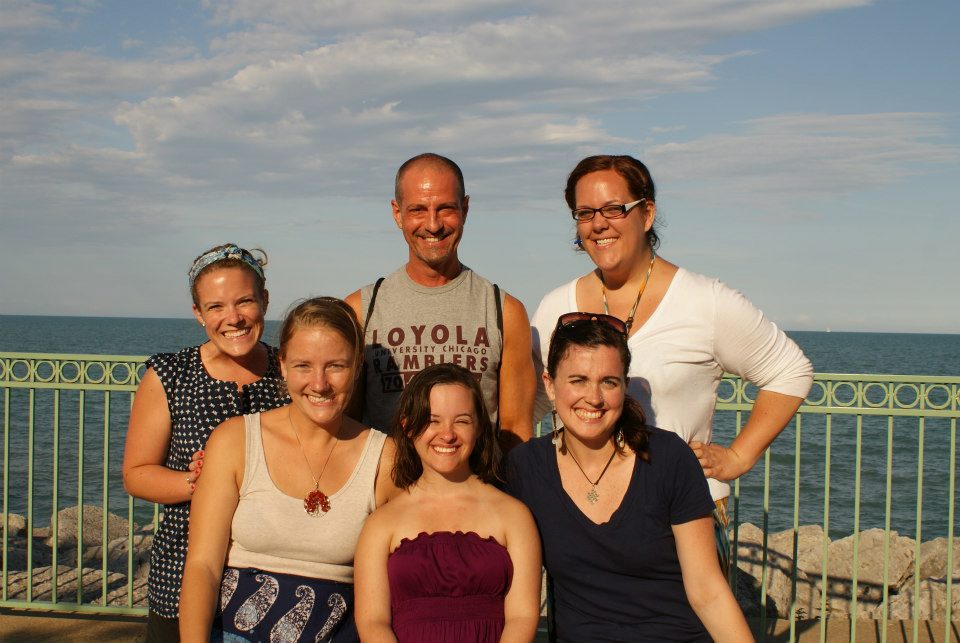

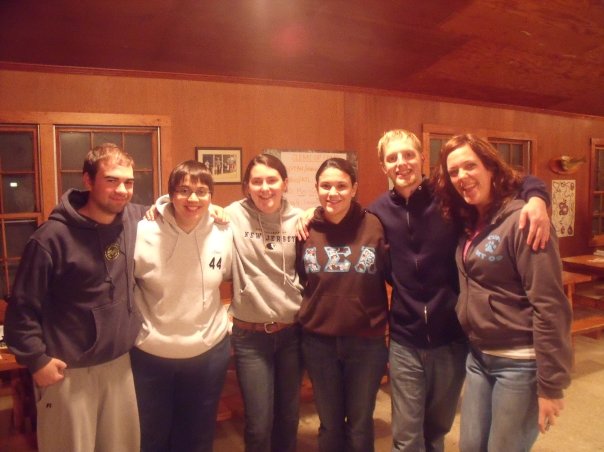

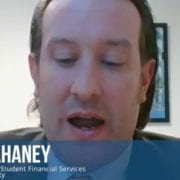
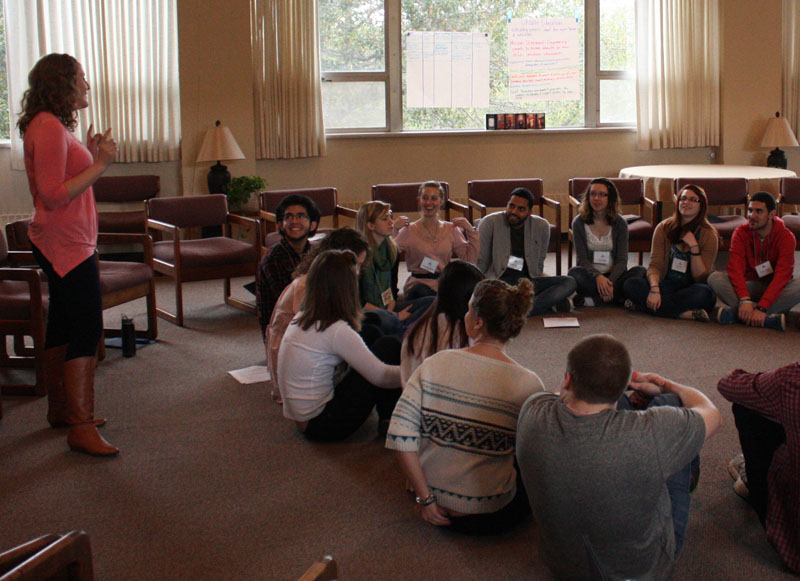
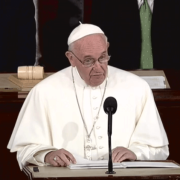
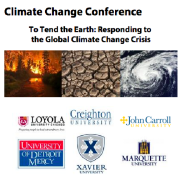
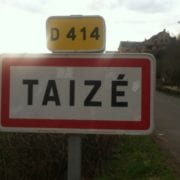

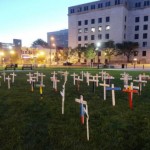
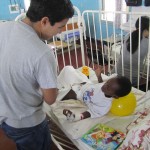
Leave a Reply
Want to join the discussion?Feel free to contribute!